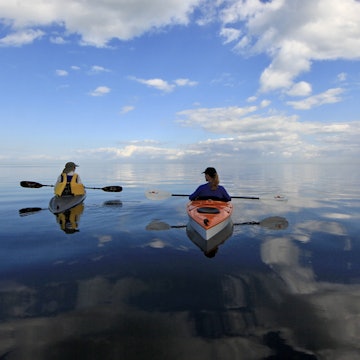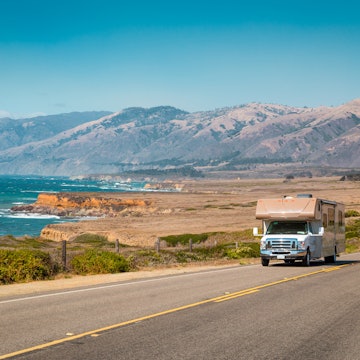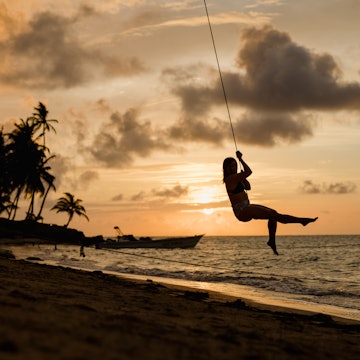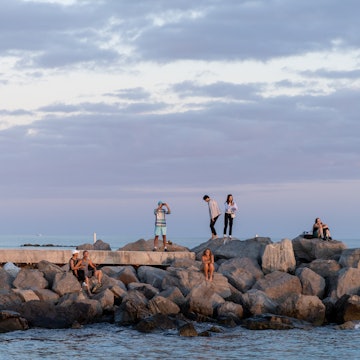
8 of the best things to do in Florida's iconic Everglades National Park

Aug 22, 2025 • 5 min read

Beached canoes in the Ten Thousand Islands, the Everglades. Boogich/Getty Images
Across more than 1.5 million acres across South Florida sprawls Everglades National Park, a wonderland of marshland, sawgrass and mangroves. Such a vast place can intimidate first-timers, and it’s hard to know where to begin.
As you plan, remember that how you explore the Everglades makes all the difference. You can hike, airboat, canoe, kayak or even travel by tram here, with each method presenting visitors with a different experience. From strolling on a boardwalk above gator-filled waters to embarking on a backcountry camping adventure, here are the best things to do in Everglades National Park.
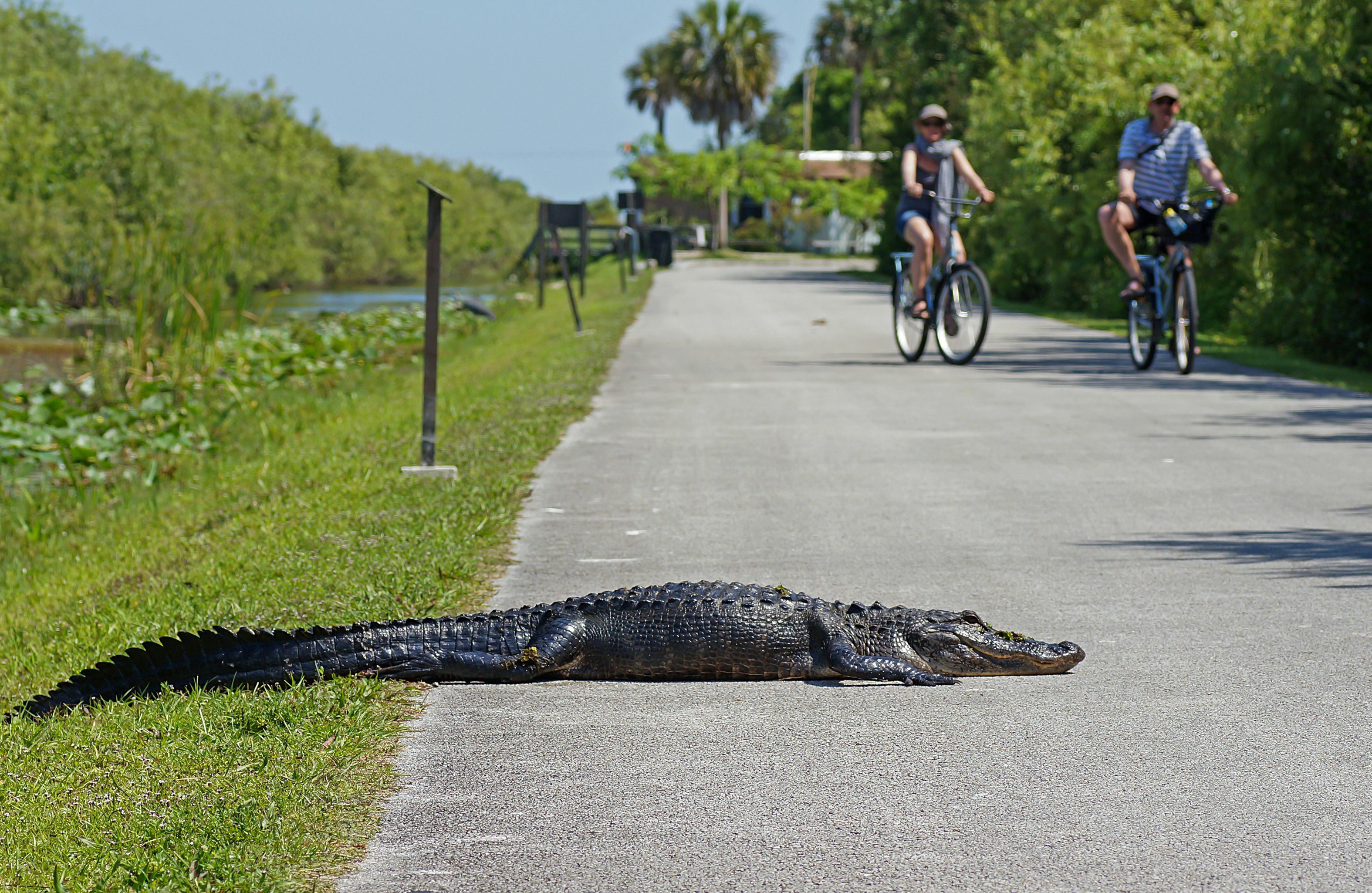
1. Explore from all the park’s entrances
There are three entrances to the park, and each provides access to distinct terrains. To make the most of an Everglades trip, you should try to visit them all.
Approximately 40 miles west of Miami, the Shark Valley Visitor Center is home to the famous 15-mile paved Tram Rd, a haven for bike rides, walks and (yes) tram rides; you’ll usually find alligators lounging by the side of the road. The Everglades Adventures Visitor Center, a temporary site in Everglades City (a new visitor center is under construction), is a hub for boating excursions, providing the perfect seaside jumping-off point for exploring the Ten Thousand Islands, a wildlife refuge for thousands of water birds.
The Royal Palm Visitor Center and Ernest F Coe Visitor Center in Homestead provide access to a number of shorter hiking trails (all under a mile), ranging from strolls under canopy trees to walks on boardwalks over the marshland. The Guy Bradley Visitor Center (Flamingo) is approximately 40 miles south of Royal Palm – it’s a gateway to the mangrove-draped Florida Bay, canoe trails and the 275-pitch Flamingo Campground.
Planning tip: The new Marjory Stoneman Douglas Visitor Center, replacing the former Gulf Coast Visitor Center that was destroyed by hurricanes in 2017 and 2022, is due to open in Everglades City at the end of 2025.
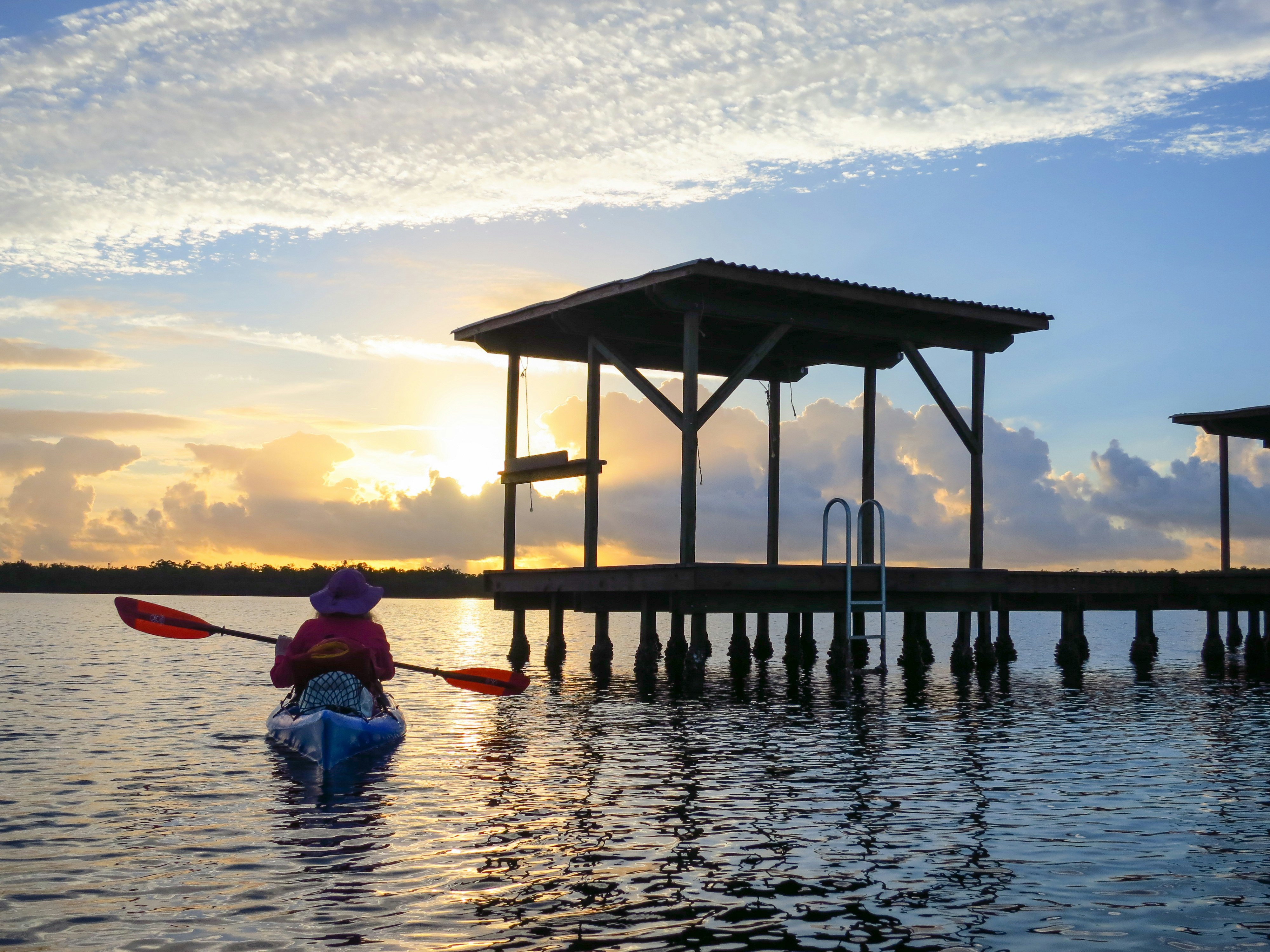
2. Camp in the backcountry on a chickee
What is a chickee, you ask? In Everglades-speak, it’s a wooden platform positioned above the water where you can set up a tent; it’s like having your own little island. Most chickee sites are found near the Guy Bradley Visitor Center in Flamingo.
You’ll need a few things in addition to your camping gear, notably a wilderness camping permit, bug repellent for the inevitable mosquitoes and a canoe (as you can only reach the platforms via water). Canoes and kayaks can be rented from several spots around the park. Off the Hell’s Bay Trail are a handful of chickee sites within a 5-mile canoe jaunt, including Lard Can and Pearl Bay Chickee.
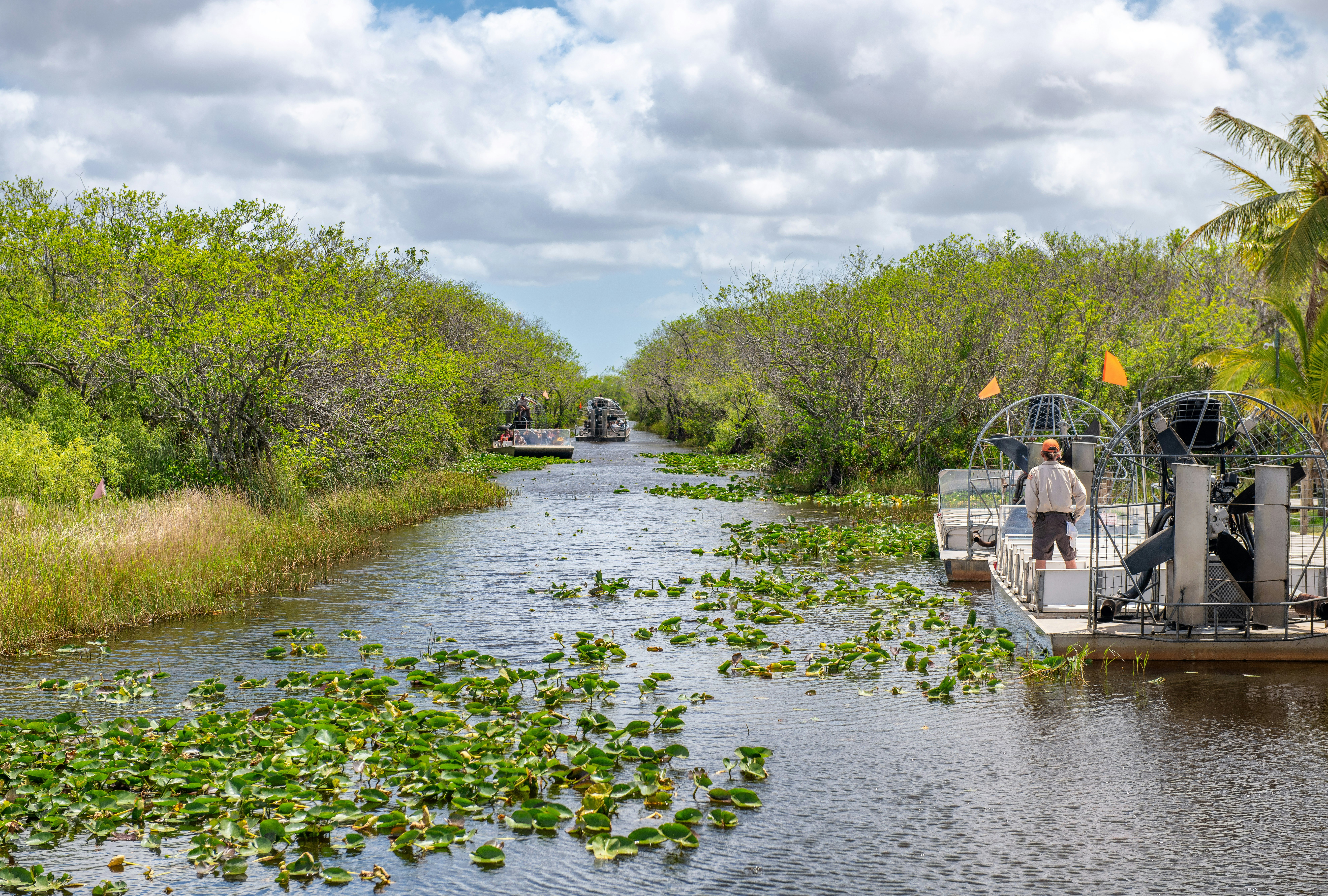
3. Zip through lily-covered water on an airboat
If the Everglades were to have an official vehicle, it would be the airboat (along the Tamiami Trail, you can’t miss all the “AIRBOAT TOURS” signs). These flat-bottomed boats with giant propeller fans on the back are designed to safely navigate the grass- and lily-heavy waters.
While there are oodles of airboat operators beyond the national park’s confines, there are only three that operate within the park: Gator Park, Everglades Safari Park and Coopertown Airboats. Whichever you choose, just make sure to keep your hands inside when you coast by the inevitable gator (or 10).
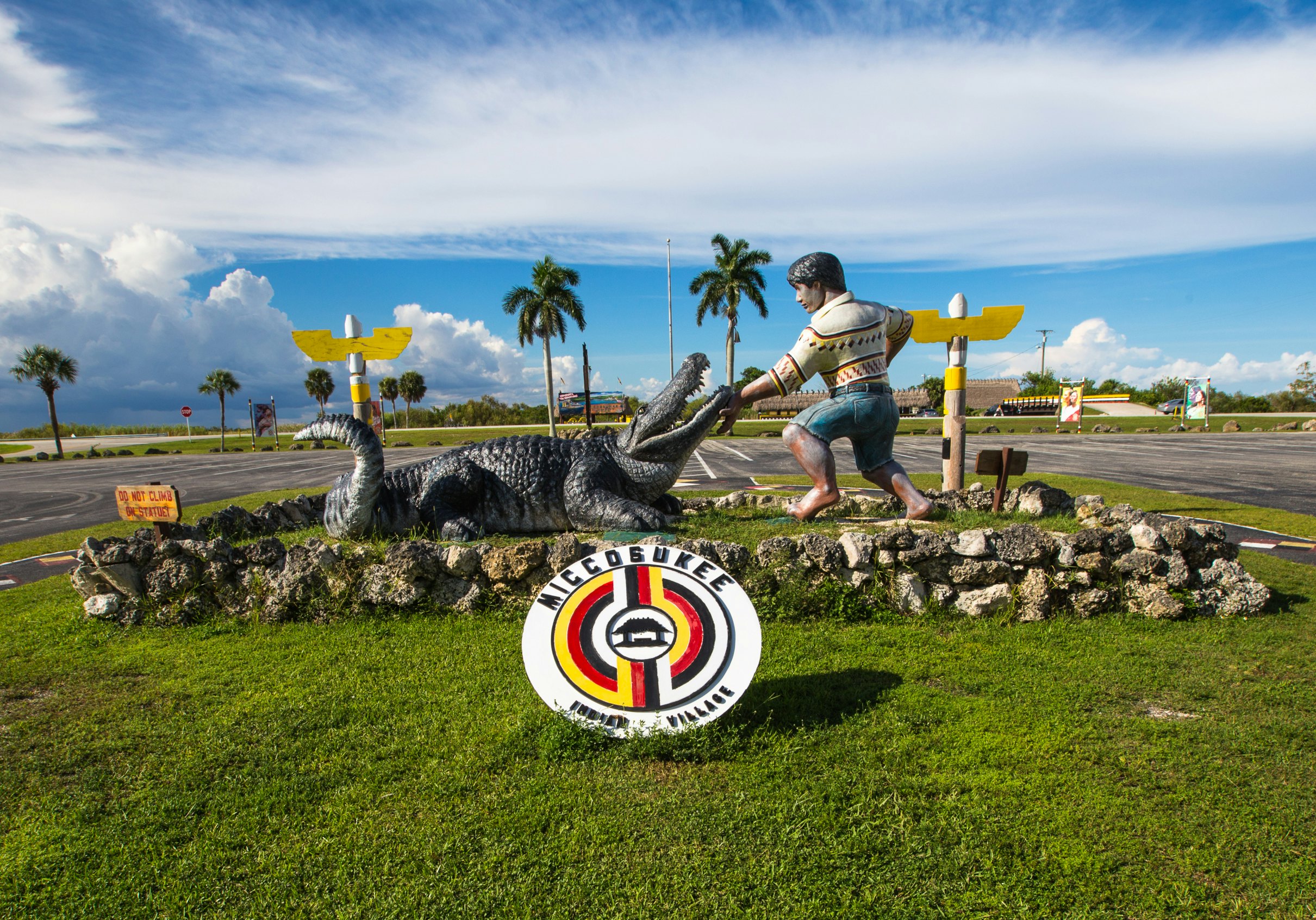
4. Learn about the Everglades’ Indigenous roots at Miccosukee Indian Village
Humans have inhabited the Everglades for upward of 15,000 years. Long before European colonization began in the 19th century, tribes like the Seminole and Miccosukee comprised the bulk of the population.
Today, you can learn all about Miccosukee culture, history and legacy at the Miccosukee Indian Village, less than a half-mile from the park’s Shark Valley entrance. The village includes a museum with beadwork and photographs, as well as regular alligator demonstrations, showing the importance of gators to the tribe. These are strictly ethical presentations, meaning there are no wrestling elements to the show.
Detour: The Museum of the Everglades also has exhibits covering more than 2000 years of the Everglades’ history. Cruising through Everglades City, you can’t miss it – it’s a restored pink building that’s on the National Register of Historic Places.
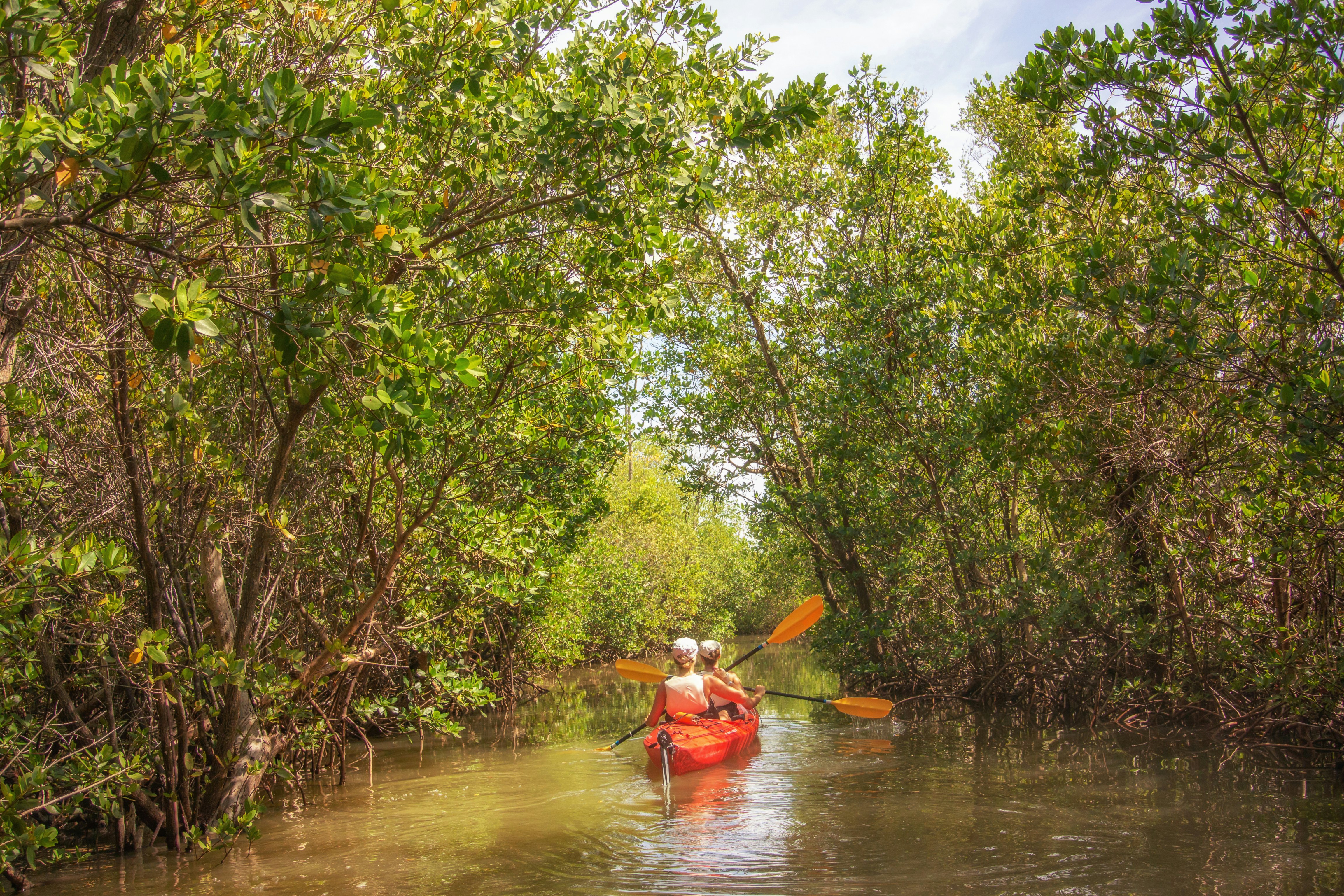
5. Canoe or kayak the Nine Mile Pond trail
The ultimate Everglades water excursion – and an easy-to-tackle one, too – awaits at Nine Mile Pond. Approximately 12 miles northwest of the Guy Bradley Visitor Center in Flamingo, you’ll find the roadside trailhead for this water course. Despite its name, it’s actually just 5.2 miles of paddle, during which you’ll swish through tree islands, curved mangrove tunnels and tranquil open waters. You don’t have to worry about getting lost thanks to periodic white PVC pipe signs with helpful arrows that jut out of the water.
Planning tip: If you need to rent a canoe or kayak, head to the Guy Bradley Visitor Center, where the team will provide you with a key to unlock a canoe or kayak that will be waiting for you at the pond.
6. Boat around the Ten Thousand Islands
Since Everglades National Park consists primarily of swamps, lakes and marshes, you’ll need a boat to get around. For a true open-water experience, catch a 90-minute, ranger-narrated boat tour through Florida Bay aboard a large catamaran. Along the way, you’ll see island after island made of mangroves, sawgrass and other lush flora. If you want an upper-body workout, four-hour, ranger-led kayak and canoe tours of Florida Bay are also on offer.
Planning tip: Book the excursion ahead of time via the park’s official partner, Everglades National Park Adventures.
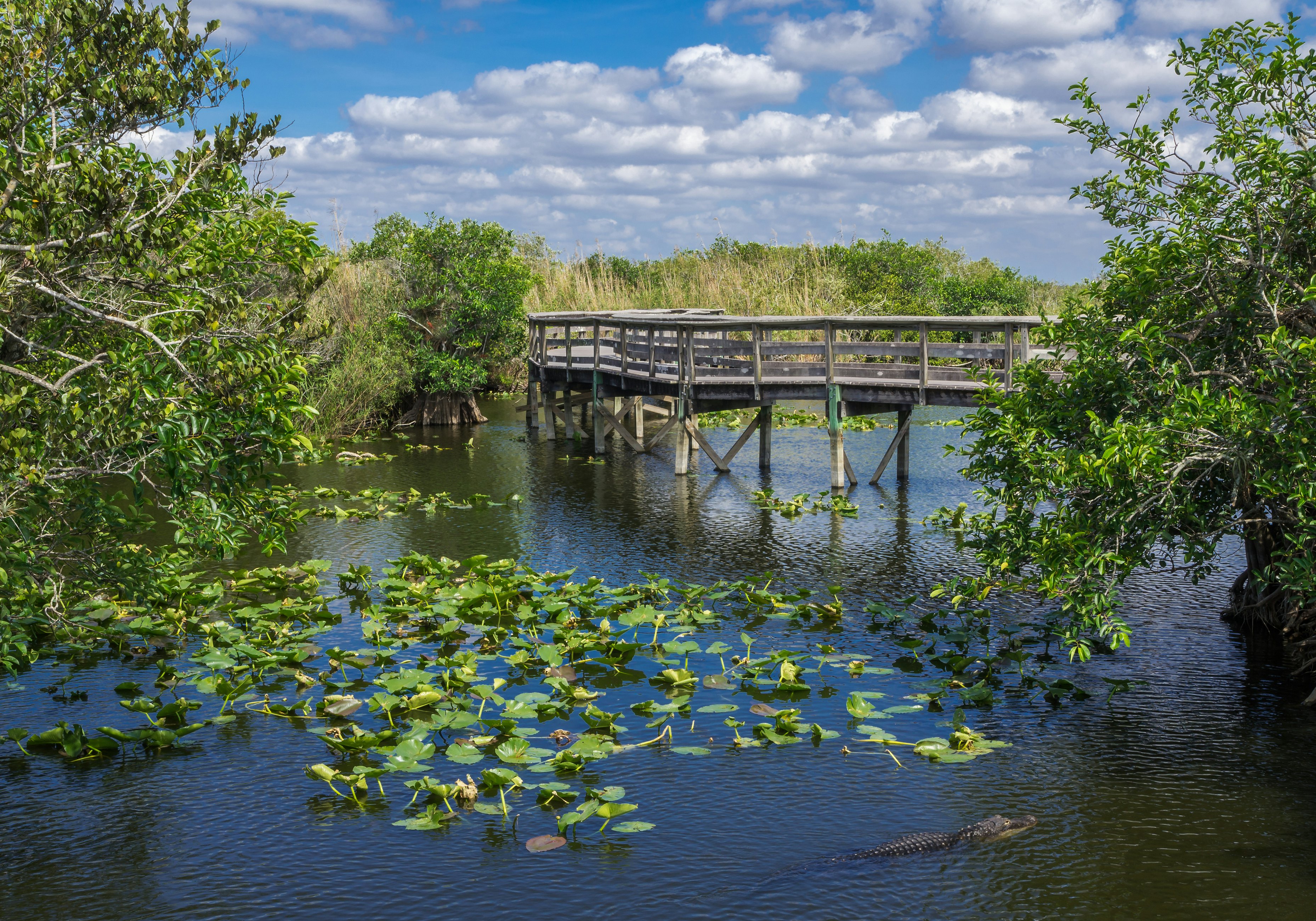
7. Spot alligators along the Anhinga Trail
Fewer than 50ft from the Royal Palm Visitor Center is the park’s most popular hiking route. While the Anhinga Trail is short – just a 0.8-mile round-trip – it delivers maximum Everglades pizzazz. As you follow the path along wooden boardwalks hovering above lily and sawgrass marsh and asphalt, you’ll have a solid shot at seeing gators, turtles and the trail’s namesake, the anhinga – a large water bird with a tail that resembles a turkey.
Detour: For a bonus short hike, the 0.4-mile wheelchair-accessible Gumbo Limbo Trail is right by the Royal Palm Visitor Center, too.
8. Watch birds at Eco annd Mrazek Ponds
Among the seemingly infinite number of waterways and ponds within the park’s confines, two spots reign supreme for bird-watching. Across the street from the Flamingo Campground and accessible via a half-mile paved trail that surrounds it, Eco Pond brims with ducks frolicking about and a range of wading birds – storks, herons, and egrets – taking a dip or soaring above. Mrazek Pond is another bird-lover’s paradise, particularly during the winter months when hordes of wood storks feast in the shallow waters.
Planning tip: Ask a guide at the Flamingo Visitor Center – just 3 miles south – what’s in season and what to expect.








